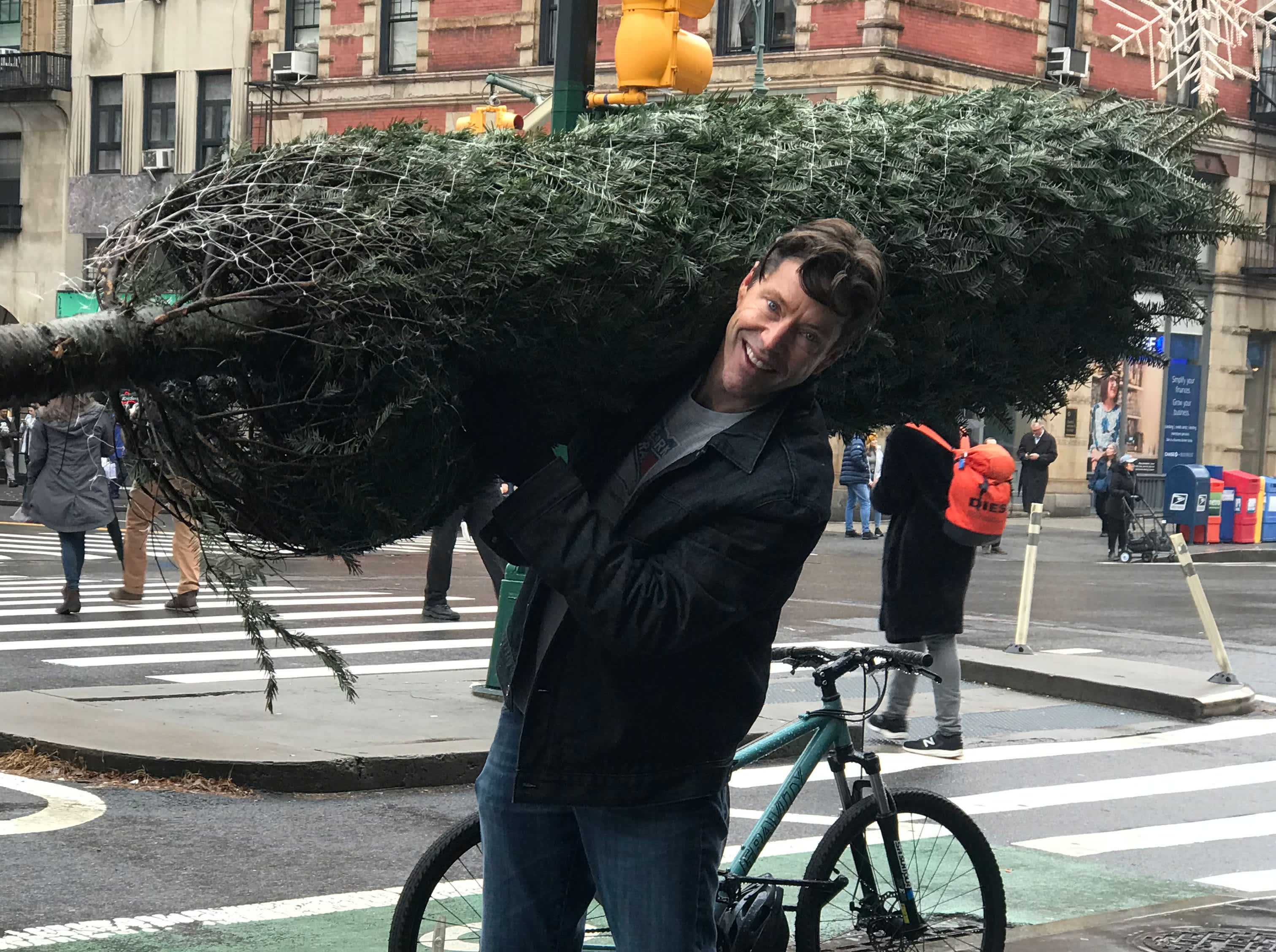Tim Seymour shopping for a Christmas tree on Manhattan’s Upper West Side.
Source: Tim Seymour
On a Saturday morning earlier this month, I went out with my daughter on the annual urban pilgrimage to buy a Christmas Tree in New York City.
My son was too busy on his iPad to care (AAPL all-time highs). We live on the Upper West Side of Manhattan, where if you didn’t know better, you might believe was in Indiana, Pennsylvania (reputed “Christmas Tree Capital of the World”), or some town in Wisconsin, or Oregon (probably the actual Christmas tree capitals), as there are Christmas tree pop-up locations every six blocks.
With the stock market at all-time highs and a trade war with China successfully navigated through phase one, I was feeling good. The University of Michigan’s Consumer Confidence Index is back near 100 (96.7, final November reading) after a summer plunge, and “those planning on buying a major household item” in the survey said it was a good time to buy. So why not a Christmas tree? But is this a “major household item”?New Yo
Well, if you live in New York City, this is a major item. The annual ridicule I get from my brothers, who live in the ‘burbs, or friends in other states, about what I pay in NYC for a Christmas tree makes it embarrassing to talk about the experience. But I’m an old-fashioned guy, and I would never own a fake tree, and my kids would be gutted if we didn’t have a tree. So off I went.
This past Saturday, the market opened at 8:15 a.m. There is no one ringing the bell, but make no mistake, this is an intense OTC market. My view was a less liquid market, a “buyers’ market,” and I had been told the night before on my way home from a holiday party by a “market maker” they were expecting robust demand on Saturday. So, I got out there early.
After testing the bid/ask on the tree market with three or four “dealers,” I was ready to trade. Trading can be emotional and if you don’t have discipline and clear levels in mind you can be at greater risk in a volatile market. I walked up to this stand at 75th Street and Columbus Avenue and presented my bid. I was putting in a limit order at $200 and hoping to be “protected there,” potentially with an improvement. I also needed to know if this was going to be same day delivery, T+1, and any other settlement costs (cash can be king).
I quickly learned I was bidding well below the market. After all I wanted a nine-foot-plus American Frazier. And why not? The economy is good, and I’m a New Yorker. I deserve a Frazier Fir. But apparently, I don’t for $200 a tree, or so I was told by my Canadian friend (in full coverall ski regalia, Burton hat, and Grateful Dead bootleg blasting from the van parked behind his stand). Wait, hold on … Canadian friend … and $250 for a tree? What’s going on here?
Apparently, the job market is too strong for American workers (a 3.5% unemployment rate after surging November Employment showed 266,000 jobs added, and American tree farms are being re-purposed for soy after the Chinese agree to do what it takes to keep trade humming (and to keep IT, and IP issues at bay).
Apparently, the South-East Appalachian indigenous Frazier Fir I sought is now coming from Canada. And I was paying $250 for it. Indexed to inflation, the tree I reluctantly bought cost me well past the Fed’s 2.0% PCE inflation tolerance, relative to my holiday season 2018 purchase.
After spending the weekend getting over my inflation shock, I woke today to realize my overpriced Frazier Fir must have been cut down (somewhere north of the border) in August, as it has lost half of its needles and wont take a drop of water.
On my lunch break I will go online to Walmart (WMT also just off all-time highs) and order a fake tree, made in China.
Happy Holidays.
